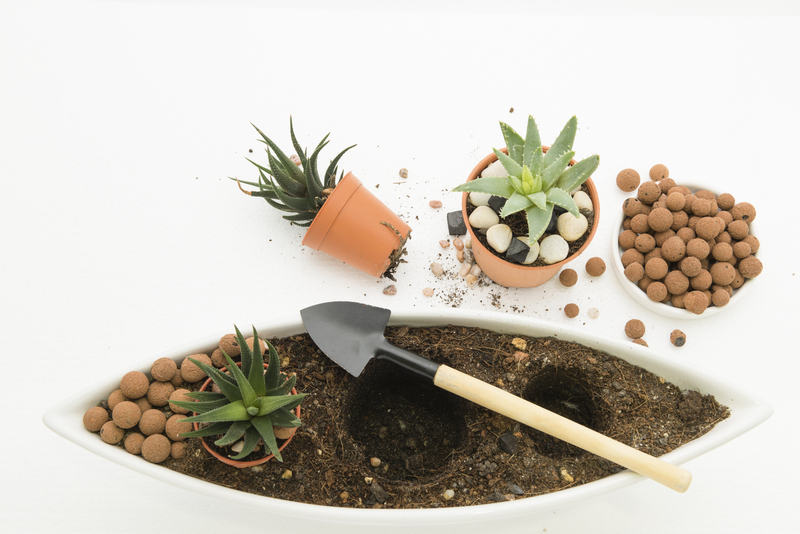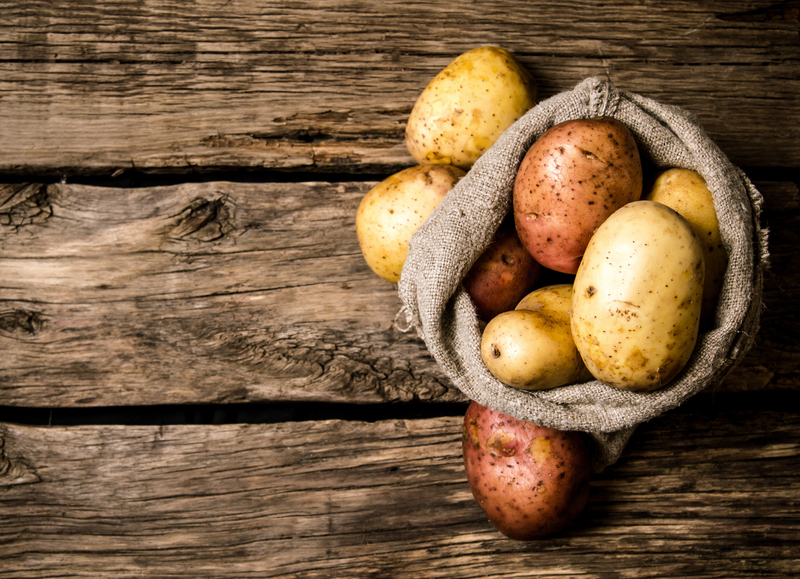Master the Art of Gardening with These Essential Beginner Tips
Posted on 23/05/2025
Master the Art of Gardening with These Essential Beginner Tips
Gardening is not just a hobby; it's a journey of nurturing, learning, and connecting with nature. For beginners, the world of gardening can appear overwhelming, but with the right guidance and essential beginner tips, you can transform any space into a flourishing green paradise. This comprehensive guide will empower you to master the art of gardening and set you on the path to a rewarding and sustainable gardening experience.

Why Start Gardening?
Gardening offers numerous benefits beyond growing beautiful flowers or fresh produce. It can reduce stress, promote physical activity, and provide an incredible sense of accomplishment. Whether you have a backyard, balcony, or just a sunny windowsill, gardening is an accessible and enjoyable pursuit for all ages.
- Boosts mental well-being
- Promotes sustainability and healthy eating
- Provides a creative outlet
- Enhances your living environment
Essential Beginner Gardening Tips to Get Started
1. Choose the Right Location
The foundation of successful gardening begins with selecting the perfect spot. Most plants thrive in locations that receive at least six hours of sunlight daily. Assess your available space--observe how sunlight changes throughout the day, and consider factors such as wind exposure and convenience to water sources.
- For flower or vegetable gardens: Seek sites with morning sun and protection from harsh afternoon rays.
- Container gardens: Use movable pots or planters for flexibility in positioning.
- Indoor gardeners: Choose windowsills with abundant sunlight or invest in grow lights.
2. Understand Your Soil
Your garden's success largely depends on the quality of soil. Different plants have varying soil requirements, but most require well-draining, nutrient-rich soil.
- Conduct a soil test to determine pH and nutrient content.
- Amend poor soils with compost, manure, or organic matter.
- Ensure proper drainage by avoiding heavy clay or waterlogged areas.
Great gardens start with great soil--don't underestimate its importance!
3. Select the Right Plants
For gardening novices, picking easy-to-grow plants increases your chances of early success. Opt for varieties that are well-suited to your climate and soil conditions.
- Consider hardy annuals such as marigolds, zinnias, or sunflowers.
- For edible gardens, start with lettuce, radishes, or tomatoes.
- Visit a local nursery for advice on the best plants for beginners in your area.
4. Master Proper Watering Techniques
Overwatering or underwatering is a common mistake for beginners. Each plant has unique water needs, but most prefer deep, infrequent watering rather than frequent shallow soaks.
- Check soil moisture by inserting your finger an inch into the soil before watering.
- Water early in the morning or late afternoon to reduce evaporation.
- Mulching helps retain soil moisture and regulate temperature.
5. Learn the Basics of Plant Nutrition
Plants require sunlight, water, and nutrients to thrive. Essential nutrients include nitrogen, phosphorus, and potassium. Using organic compost or slow-release fertilizers provides steady nourishment.
- Follow package instructions for plant food to avoid over-fertilization.
- Replenish nutrients regularly for continued growth and flowering.
- Compost yard clippings or food scraps for a sustainable boost.
6. Pay Attention to Pruning and Maintenance
Regular garden maintenance ensures healthy, vigorous plants. Learn when and how to prune, deadhead flowers, and remove weeds.
- Prune shrubs and trees to promote bushiness and get rid of deadwood.
- Deadhead spent blooms to encourage continued flowering.
- Weed regularly to prevent competition for water and nutrients.
Best Gardening Tools for Beginners
Having the right gardening tools simplifies tasks and enhances your overall experience. Here are must-have tools for every beginner gardener:
- Trowel - Ideal for digging small holes and transplanting seedlings.
- Hand fork - Essential for breaking up soil and removing weeds.
- Watering can or hose - Ensures controlled and efficient watering.
- Pruning shears - For trimming plants and harvesting produce.
- Gardening gloves - Protect your hands from thorns, dirt, and blisters.
Investing in quality basics will pay off in time and energy saved!
Simple Steps to Create Your First Garden
- Plan Your Garden: Sketch a simple layout including plant varieties and spacing requirements.
- Prepare the Soil: Remove weeds, rocks, and debris. Incorporate compost or organic matter.
- Plant Wisely: Follow spacing and depth guidelines on seed packets or plant tags.
- Water Consistently: Water new plantings gently and provide enough moisture as they establish.
- Mulch and Maintain: Add a layer of organic mulch and perform regular checks for pests or diseases.
Dealing with Common Gardening Challenges
Pest Management
Pests are a part of nature, but you can manage them without harsh chemicals. Practice integrated pest management (IPM) by encouraging natural predators such as ladybugs, and using organic solutions like neem oil or soapy water for minor infestations.
Dealing with Weeds
Weeds compete with your plants for nutrients and water. Regular weeding, using mulch, and avoiding over-tilling helps keep them at bay.
Preventing Plant Diseases
Maintain healthy plants by ensuring good air circulation, avoiding overhead watering, and promptly removing affected foliage. Use disease-resistant varieties whenever possible for a proactive approach.
Pro Tips to Elevate Your Gardening Skills
- Keep a garden journal: Track plant growth, harvest dates, weather conditions, and notes for future improvement.
- Read labels and instructions: Every plant is unique--research its needs for optimal results.
- Start small: Focus on manageable garden plots or containers before committing to larger projects.
- Seek community support: Join local gardening clubs or online forums to gain insights and inspiration.
- Practice patience: Gardens take time to mature. Celebrate small victories and learn from challenges.
Beginner's Guide to Sustainable Gardening
As you master the art of gardening, consider adopting eco-friendly practices for a more sustainable space:
- Compost organic waste to enrich soil naturally.
- Collect rainwater for irrigation and reduce reliance on tap water.
- Grow native or drought-tolerant plants for low-maintenance, resilient gardens.
- Use natural pest controls and avoid synthetic chemicals.
Your backyard can become a haven for pollinators, birds, and local wildlife--making sustainable garden choices benefits both you and the planet!
Transform Any Space: Small Space & Urban Gardening Tricks
Don't have a large yard? No problem! Urban gardening and small-space gardening techniques allow you to grow lush greenery on balconies, patios, rooftops, or even indoors.
- Use vertical gardening techniques like trellises, wall planters, and hanging baskets.
- Choose compact or dwarf varieties for containers and windowsills.
- Group pots for visual impact and easy maintenance.
- Try herb gardens on kitchen shelves for fresh flavors year-round.
Gardening for Health: Grow Your Own Food
Homegrown vegetables and herbs are fresher, tastier, and more nutritious. As a beginner, start with fast-growing crops such as:
- Lettuce and spinach
- Radishes and carrots
- Tomatoes and cucumbers
- Basil, parsley, and mint
Enjoy the satisfaction of picking ingredients right from your own garden, enhancing your meals, and living a healthier lifestyle!

Conclusion: Cultivate Confidence and Joy in Your Gardening Journey
Mastering gardening skills is a rewarding process that unfolds season by season. With these essential tips for beginner gardeners, you'll gain confidence and delight in watching your plants thrive. Remember, every gardener was once a beginner, and even small successes are steps toward becoming a true gardening enthusiast.
So grab your gloves, pick up your trowel, and let the adventure begin. With a bit of patience, creativity, and these must-know gardening tips, you're well on your way to mastering the art of gardening--one seed, one bloom, one harvest at a time.
Frequently Asked Questions About Beginner Gardening
- How often should I water my garden?
Most plants need water when the top inch of soil is dry. Frequency depends on plant type and weather conditions--always check soil moisture before watering. - What's the best time to plant?
Early spring or fall are ideal for most plants, but always consult local planting calendars for guidance. - Can I garden if I have no outdoor space?
Absolutely! Indoor plants and container gardening make it possible, even in small apartments. - What are the easiest vegetables for beginners to grow?
Leafy greens (lettuce, spinach), radishes, carrots, and bush beans are all beginner-friendly choices. - How do I keep pests away without chemicals?
Encourage natural predators, use row covers, and apply organic remedies like neem oil.
With these answers and essential beginner gardening tips, you have all you need to begin your journey and flourish as a gardener.
Latest Posts
Creating a Tranquil Zen Garden for Your Outdoor Sanctuary
Top 9 Rapidly Flourishing Hedges for Enhanced Privacy
Exploring the Art and Beauty of Vertical Gardening

